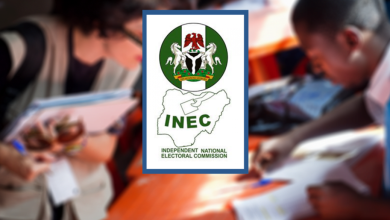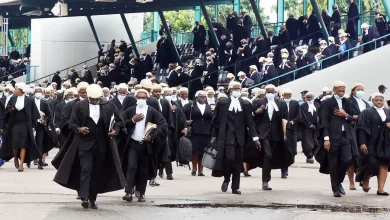Reflecting on One Nigeria: Overcoming Ethnic Divides

An old interview video surfaced some months back, and it caused a number of reactions from the general public – mainly rage. This is because the video is about a white man asking the then Premier of Northern Nigeria, Sir Ahmadu Bello, this question:
https://web.facebook.com/reel/371906735566806
“The one thing I’ve noticed here, is that the northerners seem to have, should I call it an obsession with the igbos, could you perhaps explain that to me?”
To this question Bello replies:
“Well, the igbos are more or less the type of people whose desire is mainly to want to dominate everybody, if they go to a village, a town, they’d want to monopolize everything in that area. If you put them in a labor camp, as a laborer, in more than a year, they’d want to emerge as the head of that camp. Well in the past our people were not alive to their responsibilities”
The first thing one notices about the video and the dialogue in it, is that when Bello is asked about an obsession with the igbos, Bello doesn’t deny that the Northerners at the time, had an obsession with the igbos. He immediately started answering.
However, his answer, while honest, doesn’t actually portray a negative thing about the igbos, instead he simply says what he has noticed about said igbos. He essentially calls them an ambitious and hard-working set of people, which is not a criticism at all.
In stating his observation, it’s immediately clear why he seems to have an issue with it. Bello felt that the igbos, being very industrious, are getting favored in the Northern Civil Service, even more so than Northerners, so he puts things in place to ensure that northerners get more – and the best – opportunities in the Northern Region.
The video then, while it hints at some ethnic bias, doesn’t actually reflect the depth of the ethnic divide in Nigeria, because Bello is ultimately right in what he says.
“Are northerners employed in the east or the west? The answer is no”
Was Bello exhibiting bigotry? Or was he trying to look out for his people, which was his role as the Primate of the Northern region?
Most importantly, was Bello doing something new? Or was he doing something in the north that leaders of the eastern and western region were already doing?
An honest answer to the above questions shows that Bello was not in fact doing anything special or hateful, just doing what other Nigerian leaders were doing at the time: looking out for their own people.
This video is set in the 1960s, where Nigeria was divided into three regions: Northern region, Western region and Eastern region, each governed by Premiers.
This already meant that in each region, the focus was on the people of that region. In the sense that it was mainly Northerners that were in the north, Easterners in the east, and Westerners in the west.
Everything that was done in these regions were done with that in mind. Easterners were already being given priority in employment situations in the east, and the same was being done in the west.
This was not uncommon, and it was not hidden. Everyone knew it was happening. There was already a bias towards members of an ethnic group in their respective regions.
The issue with this, is that it created an “Us vs Them” mentality, and that mentality has not left the mind and thought process of many Nigerians till today, unfortunately.
This Us-vs-Them mentality has especially seeped into the political space and influenced major decisions like federal elections, long after Nigeria was no longer grouped as Northern, Western and Eastern regions.
Many Nigerians still looked at themselves as grouped in regions, and kept making decisions as though the elected Presidents would favor certain regions.
The Nigerian Civil war was almost a direct consequence of the extremes of the Us-vs-Them mentality and thought process.
The Civilian presidency was the first step toward fostering unity, as every citizen in the country could actively participate toward selecting someone who would preside over every citizen as President.
This should have been the first cue to abandon ethnic bias, and look toward selecting the best candidate for the country, not just the best candidate for a certain ethnic region, as there is no way for the President of the nation to only impact one region, without impacting all areas.
Hence, a good President would be enjoyed by all citizens, and a bad President would be suffered by all citizens.
In an interview with historian and economist Mr. Oladipo*, he answers a few questions about Nigeria’s unity and diversity. He was asked:
https://www.youtube.com/watch?v=zreuacGdwyc
What key historical and contemporary factors do you believe have been instrumental in fostering and sustaining Nigeria’s unity over the years?
It’s just painful that we are here together and we see ourselves as not totally one. Outside the country, no matter where you’re from, we see ourselves as brothers.
What is keeping us together is our oneness. Our oneness is what made us the most populated black country in Africa. If we decide to break up, we’d miss out as the most populated African country.
What opportunities do you see for Nigeria in leveraging its diversity as a strength to foster national cohesion and progress?
Youth. Youth. Youth. Nigeria’s average age is 21. Nigeria is one of the youngest populations in the world. The strongest part of every nation is the youth.
Nigeria is endowed with youth, and is endowed with smart youths at that. What the government needs to do is create an enablement for these young people to exhibit their talent.
When you look at tech, Nigerians can compete even to the level of silicon valley. What are we doing as a nation in this regard?
What are we doing to develop people around sport? It’s only in Nigeria people feel sport is not education. We need to create an avenue for our youths to have sports as a profession.
Imagine having a standard stadium where people can go train to become footballers or professionals. That would be great.
Nigeria needs to put things in place to maximize the strength of the youth we have.
Oladipo highlights the strengths Nigeria has and calls on the federal and state governments to embrace the power that harnessing the youth brings. He emphasizes sports and tech as key areas through which the country can bring the youths together, and by extension, bring the people together.
Some people have expressed desire to separate from Nigeria for one reason or another, but what many people don’t realize is, division will never end at one level.
For example, if the igbo people break away to become their own nation, it would not be long before some tribes within the igbo community start feeling left out in one way or another, and as such will want to break away too from the igbo community and “have their own”. It would continue like this.
This also applies to any other group that wants to break away.
A civil war has already happened, and according to the Biafra leader, the then governor of the Eastern Region Chukwuemeka Odumegwu Ojukwu, who led the igbos in the civil war, “We don’t need another one (civil war)”.
As far back as 1957, the then Premier of the Western Region of Nigeria, Chief Obafemi Awolowo, emphasized the need for all Nigerians to see the importance of remaining as one country.
Enough lessons have been drawn from the Biafran war, and like Ojukwu said, “If we didn’t learn our lesson, it means the people who died, died in vain”
Nigeria can only remain strong if it remains one, and that can only be the case if every citizen sees himself as Nigerian first, and whatever ethnic group member second. You’re Nigerian before you’re Yoruba, Igbo, Hausa, or any other tribe.
In any leadership position any Nigerian finds themselves, they should do everything to be fair to everyone in their sphere of influence, regardless of ethnicity. This is the only way the people will begin to trust the government and collaborate more with them.
This is the only way Nation building can take place.
Awolowo said in 1957 that he thinks most Nigerians are enlightened, and it is time for Nigerians from all ethnic groups to act accordingly and make decisions for the good of the nation. Cast aside ethnic biases, and look at factors that can help the country as a whole. As a single entity.
Don’t continue to look at Nigeria as an area filled with igbos, yorubas, hausas etc, instead look at it as an area filled with Nigerians.
We will get to where we want as a country, but only if we build it together. Each person doing what is right. Together. As one.





